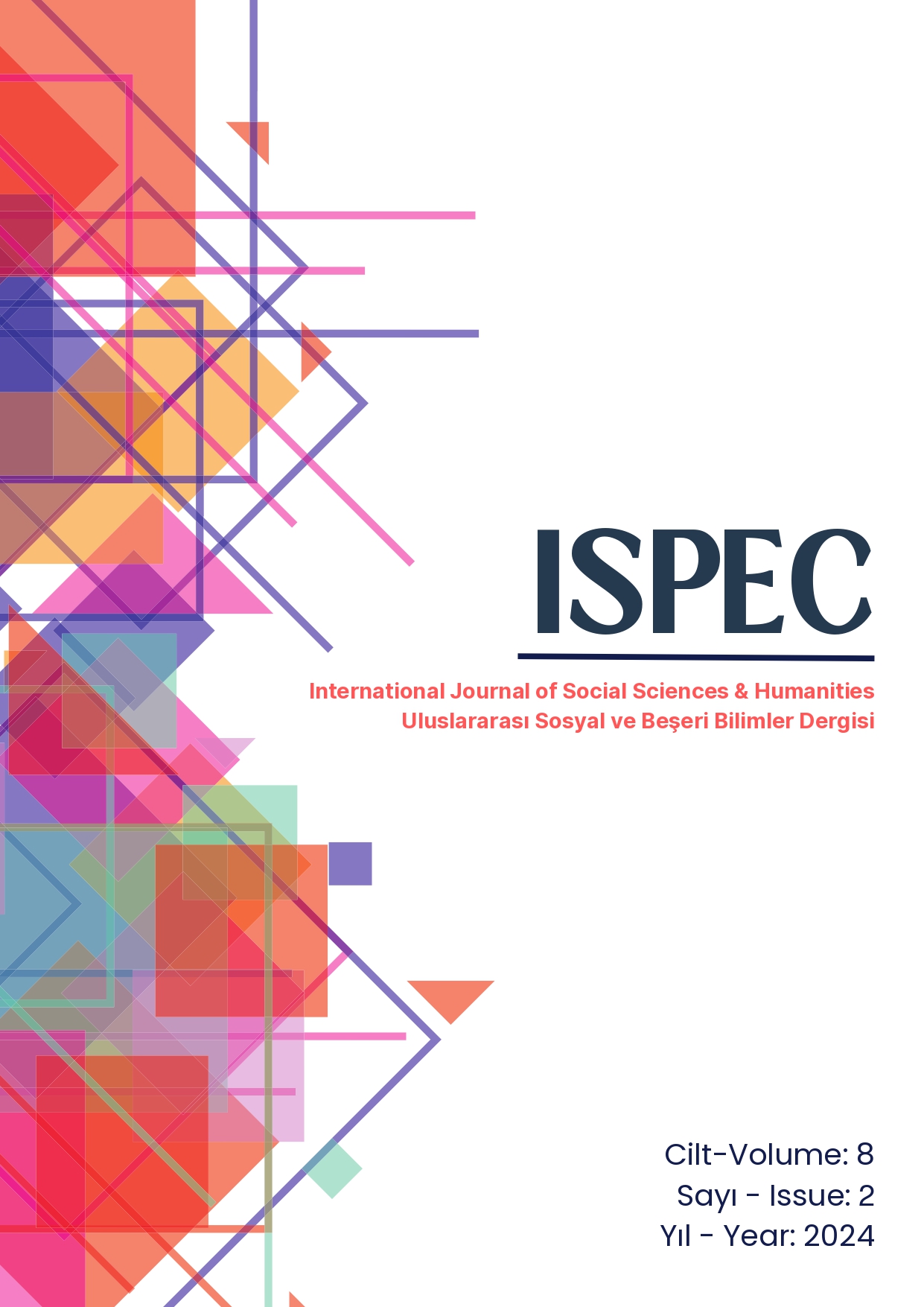Technological Innovations And Management In Esports
DOI:
https://doi.org/10.5281/zenodo.12192158Keywords:
esport, technological innovations, audience experience, marketing, legal frameworkAbstract
Esports have become a significant part of contemporary digital culture, attracting attention with their interdisciplinary interactions and strategic and technological roles. This study examines the definition, scope, and related technological innovations of esports; it also explores various aspects such as team management, audience experiences, event management, marketing and brand management, data analytics, virtual and augmented reality applications, media relations, and legal frameworks. The aim of the research is to thoroughly investigate the multidimensional structure of esports, thereby revealing current and potential strategies within this field. The research was conducted using qualitative methodologies, involving both primary and secondary source reviews. It utilized international scholarly articles, conference proceedings, sector reports, and official publications from esports organizations. The findings indicate that esports play a critical role in the digitalization process and offer significant opportunities across a wide range of management to marketing. Technological innovations enrich audience experiences, while event management and media relations enhance global interactions within esports. Furthermore, esports target a young, tech-savvy demographic, opening new marketing channels for brands. This study aims to provide a foundational resource for better understanding and comprehensively addressing the esports sector, offering data that could guide future research.
References
Acir, E. (2019). Video games, virtual reality and augmented reality applications in tourism promotion and marketing. 9th Advances in Hospitality and Tourism Marketing and Management Conference.
Bahrololloomi, F., Klonowski, F., Sauer, S., & Horst, R. (2023). E-sports player performance metrics for predicting the outcome of League of Legends matches considering player roles.
Brown, K. A., Billings, A. C., Murphy, B., & Nabi, R. L. (2018). Intersections of fandom in the age of interactive media: eSports fandom as a predictor of traditional sport fandom. Communication & Sport.
Cacho-Elizondo, S., Álvarez, J. D. L., & De la O, M. P. (2020). The emerging esport market: Analyzing the impact of virtual and augmented reality. Chinese Business Review.
Cumming, D. (2018). Understanding the experience of Australian eSports spectatorship. DiGRA Conference.
Fenton, A., Chadwick, S., & Miah, A. (2020). Virtual reality and sports: The rise of mixed, augmented, immersive, and esports experiences. 21st Century Sports: How Technologies Will Change Sports in the Digital Age.
Freeman, G., & Wohn, D. Y. (2017). eSports as an emerging research context at CHI: Diverse perspectives on definitions. Proceedings of the 2017 CHI Conference on Human Factors in Computing Systems
Gawrysiak, J., Burton, R., Jenny, S., & diğerleri. (2020). Using esports efficiently to enhance and extend brand perceptions–A literature review. Physical Culture and Sport Studies and Research.
Giakoni-Ramírez, F., Duclos_Bastías, D., & diğerleri. (2021). Sponsoring eSports Strategies: Brand Image and Attraction Sponsors. Turkish Online Journal of Design, Art and Communication.
Hölzle, K., Kullik, O., Rose, R., & diğerleri. (2022). The digital innovation ecosystem of eSports: a structural perspective. In Handbook on Digital Innovation. Edward Elgar Publishing. DOI: 10.4337/9781839107184.00046
Kalynets, K., & Krykavskyy, V. (2022). Marketing solutions to promote branding in eSports. Technology audit and production reserves.
Kokkinakis, A. V., Demediuk, S., & Nölle, I. (2020). Dax: Data-driven audience experiences in esports. Interactive Media Experiences.
Leon, M., Hinojosa-Ramos, M. V., León-Lopez, A., & Belli, S. (2022). eSports Events Trend: A Promising Opportunity for Tourism Offerings. Sustainability, 14(21)
Malhotra, R. K. (2018). Branding in eSports: An empirical analysis of the specifics of public relations compared to traditional sports. Psychology and Education.
Marelić, M., & Vukušić, D. (2019). E-sports: Definition and social implications. Exercise and Quality of Life Journal.
Nagorsky, E., & Wiemeyer, J. (2020). The structure of performance and training in esports. PloS one
Nufer, G., & Mariot, D. (2022). Branding in eSports: An empirical analysis of the specifics of public relations compared to traditional sports. IUP Journal of Brand Management.
Olsen, A. H. (2015). The evolution of eSports: An analysis of its origin and a look at its prospective future growth as enhanced by Information Technology Management tools.
Peng, Q., Dickson, G., Scelles, N., Grix, J., & Brannagan, P. M. (2020). Esports governance: Exploring stakeholder dynamics. Sustainability, 12(19), 8270. DOI: 10.3390/su12198270
Pradhan, S., & Abdourazakou, Y. (2020). “Power ranking” professional circuit esports teams using multi-criteria decision-making (MCDM).
Rodrigues, E., & Filgueiras, E. (2020). How do video game aspects define competitive gaming streams and spectatorship? Conference on Human Factors in Computing Systems – Proceedings
Saiz-Alvarez, J. M., Palma-Ruiz, J. M., Valles-Baca, H. G., & diğerleri. (2021). Knowledge management in the esports industry: sustainability, continuity, and achievement of competitive results. Sustainability, 13(19), 10890. DOI: 10.3390/su131910890
Schubert, M., Drachen, A., & Mahlmann, T. (2016). Esports analytics through encounter detection.
Shinohara, T. (2020). The road to a common framework for the esports society through the lens of international law. International Journal of Law and Information Technology.
Shynkaruk, O., Byshevets, N., Iakovenko, O., & Serhiyenko, K. (2021). Modern approaches to the preparation system of Masters in eSports.
Southern, N. (2017). The rise of eSports: A new audience model and a new medium. California State University.
Stein, V., & Scholz, T. M. (2016). Sky is the Limit–Esports as Entrepreneurial Innovator for. In Interdisciplinarity in Social and Human Sciences.
Viscione, I., & D'Elia, F. (2019). Augmented reality for learning in distance education: The case of e-sports. Journal of Physical Education and Sport.
Wagner, M. G. (2006). On the Scientific Relevance of eSports. International Conference on Internet Computing
Wagner, M. G. (2006). On the Scientific Relevance of eSports. International conference on internet computing.
Walton, D. R., Lower-Hoppe, L. M., & Diğerleri. (2020). Do esports classify as intercollegiate sport? Legal analysis of Title IX. Journal of Issues in Intercollegiate Athletics.
Zagnoli, P., & Radicchi, E. (2022). Disruptive Technologies on Sport Event Marketing: New Centrality of Digital Communication. Marketing Analysis in Sport Business.
Zhang, J., & Dai, G. (2024). Mechanisms of Emotional Experiences of Online Spectators of E-Sports Events From the Perspective of Interactive Ritual Chain. Communication & Sport.
Downloads
Published
How to Cite
Issue
Section
License
Copyright (c) 2024 ISPEC International Journal of Social Sciences & Humanities

This work is licensed under a Creative Commons Attribution-NonCommercial-NoDerivatives 4.0 International License.






